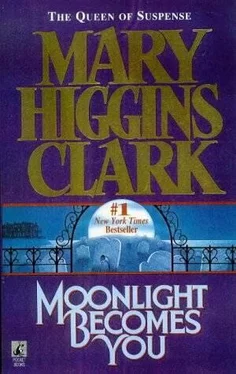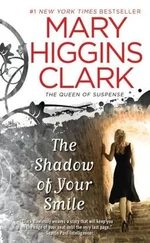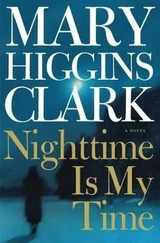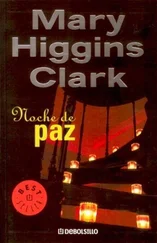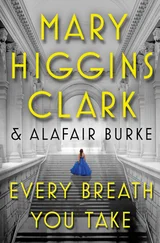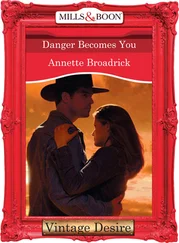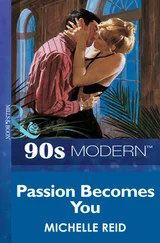Mary Clark - Moonlight Becomes You
Здесь есть возможность читать онлайн «Mary Clark - Moonlight Becomes You» весь текст электронной книги совершенно бесплатно (целиком полную версию без сокращений). В некоторых случаях можно слушать аудио, скачать через торрент в формате fb2 и присутствует краткое содержание. Жанр: Триллер, на английском языке. Описание произведения, (предисловие) а так же отзывы посетителей доступны на портале библиотеки ЛибКат.
- Название:Moonlight Becomes You
- Автор:
- Жанр:
- Год:неизвестен
- ISBN:нет данных
- Рейтинг книги:5 / 5. Голосов: 1
-
Избранное:Добавить в избранное
- Отзывы:
-
Ваша оценка:
- 100
- 1
- 2
- 3
- 4
- 5
Moonlight Becomes You: краткое содержание, описание и аннотация
Предлагаем к чтению аннотацию, описание, краткое содержание или предисловие (зависит от того, что написал сам автор книги «Moonlight Becomes You»). Если вы не нашли необходимую информацию о книге — напишите в комментариях, мы постараемся отыскать её.
Moonlight Becomes You — читать онлайн бесплатно полную книгу (весь текст) целиком
Ниже представлен текст книги, разбитый по страницам. Система сохранения места последней прочитанной страницы, позволяет с удобством читать онлайн бесплатно книгу «Moonlight Becomes You», без необходимости каждый раз заново искать на чём Вы остановились. Поставьте закладку, и сможете в любой момент перейти на страницу, на которой закончили чтение.
Интервал:
Закладка:
“The house was built in 1850 by my great-great-grandfather,” Earl explained. “It was our first funeral parlor, and back then the family lived on the top floor. My grandfather built the present establishment, and my father expanded it. This house was used by a caretaker for a while. When we sold the business ten years ago, we separated the house and an acre of the property, and I took it over completely. I opened the museum shortly after that, although I’d been putting it together for years.”
Earl put his hand on Maggie’s elbow. “You’re in for a treat. Now remember, I want you to look at everything with an eye toward what I should suggest for visuals. I don’t mean just for the individual lectures, but maybe something as well for an opening and closing signature for the series.”
They were on the porch. Located on the broad railing, and helping to offset somewhat the overall funerary gloom, were several planters filled with violets and mountain pinks. Bateman lifted the edge of the nearest planter and withdrew a key. “See how I trust you, Maggie? I’m showing you my secret hiding place. This is an old-fashioned lock, and the key is much too heavy to bother carrying around.”
Pausing at the door, he pointed to the crepe. “In our society it used to be the custom to drape the door like this to signify that this was a house of mourning.”
My God, how he enjoys this! Maggie thought, shivering slightly. She realized her hands were damp and shoved them in the pockets of her jeans. The irrational thought went through her head that she had no business entering a house of grief dressed in a plaid shirt and jeans.
The key turned with a grating sound, and Earl Bateman pushed the door open and then stood back. “Now what do you think of that?” he asked proudly, as Maggie moved slowly past him.
A life-sized figure of a man in black livery stood at attention in the foyer, as though ready to receive guests.
“In Emily Post’s first etiquette book, published in 1922, she wrote that when a death occurred, the butler in his day clothes should be on duty at the door until a footman in black livery could replace him.”
Earl flicked something Maggie could not see from the sleeve of the mannequin.
“You see,” he said earnestly, “the downstairs rooms show our grief culture in this century; I thought the liveried figure would be interesting to people as they came in. How many people today, even wealthy people, would have a footman in black livery stationed at the door when someone in the family dies?”
Maggie’s thoughts abruptly leaped back to that painful day when she was ten years old and Nuala told her she was going away. “You see, Maggie,” she had explained, “for a long time after my first husband died, I carried dark glasses with me. I cried so easily that I was embarrassed. When I felt it coming on, I’d reach in my pocket and grab the glasses, and I’d think ‘Time to put on the grief equipment again.’ I hoped your father and I could love each other that way. I’ve tried hard, but it just can’t be. And for the rest of my life, whenever I think of the years I’m going to miss with you, I’ll have to reach for my grief equipment.”
Remembering that day always brought tears to Maggie’s eyes. I wish I had some grief equipment right now, she thought as she brushed the moisture off her cheek.
“Oh, Maggie, you’re touched,” Earl said, his tone reverent. “How understanding of you. Now on this floor, as I told you, I have rooms that exhibit twentieth-century death rituals.”
He pushed aside a heavy curtain. “In this room, I’ve staged Emily Post’s version of a very small funeral. See?”
Maggie looked in. The figure of a young woman, dressed in a pale green silk robe, was laid out on a brocaded sofa. Long auburn ringlets spilled around a narrow satin pillow. Her hands were folded over silk replicas of lilies of the valley.
“Isn’t that charming? Doesn’t she look just like she’s sleeping?” Earl whispered. “And look.” He pointed to a discreet silver lectern near the entrance. “Today, this would be where visitors sign the guest book. What I did instead was to copy a page from the original Emily Post book about the care of the bereaved. Let me read it to you. It’s really quite fascinating.”
His voice echoed through the too-quiet room:
“‘The ones in sorrow should be urged if possible to sit in a sunny room and where there is an open fire. If they feel unequal to going to the table, a very little food should be taken to them on a tray. A cup of tea or coffee or bouillon, a little thin toast, a poached egg, milk if they like it hot, or milk toast. Cold milk is bad for one who is already over-chilled. The cook may suggest something that appeals usually to their taste…’”
He stopped. “Isn’t that something? How many people today, no matter how much money they have, have a cook who is worried about what appeals to their taste? Right? But I think this would make a wonderful individual visual, don’t you? The signatures for the opening and closing, though, have to have a broader scope.”
He took her arm. “I know you don’t have a lot of time, but please come on upstairs with me. I’ve got some great replicas of archaic separation rites from ancient times. Banquet tables, for example. It would seem that diverse people inherently understood that death must include a banquet or feast at the end of the ceremony, because extended grief is debilitating to the individual and to the community. I’ve got typical examples set up.
“Then there’s my burial section,” he continued enthusiastically as they ascended the stairs. “Have I mentioned a custom of the Sudan people who suffocated their leader when he was becoming old or feeble? You see, the principle was that the leader embodied the vitality of the nation and must never die or the nation would die with him. So when the leader was clearly losing his power, he was secretly put to death, then walled up in a mud hut. The custom then was to believe that he had not died but, rather, had vanished.” He laughed.
They were on the second floor. “In this first room, I’ve created a replica of a mud hut. Now just between us, I’ve already gotten started on an outdoor museum where the burial area can be even more realistic. It’s about ten miles from here. So far I’ve had some excavation done, basically just some bulldozing. I’m designing the entire project myself. But when it’s completed, it really will be quite wonderful. In one area I’ll have a miniature replica of a pyramid, with a section of it transparent so that people can see how the ancient Egyptians entombed their pharaohs with their gold and priceless jewels to accompany them into the hereafter…”
He’s babbling, Maggie thought, a leaden sense of unease settling over her. He’s crazy! Her mind was racing as he propelled her from room to room, each of them containing what resembled an elaborately structured stage setting. Earl was holding her hand now, pulling her along as he darted about to show everything, explain everything.
They were almost at the end of the long hallway, and Maggie realized that she still had not seen anything resembling the bells she had found on the graves.
“What do you have on the third floor?” she asked.
“That’s not ready for exhibits yet,” he replied absently. “I use it for storage.”
Then he stopped abruptly and turned to her, his eyes intense. They were at the end of the hallway, in front of a heavy door. “Oh, Maggie, this is one of my best exhibits!”
Earl turned the handle and with a dramatic flourish threw open the door. “I combined two rooms to get the effect I wanted here. This depicts an aristocrat’s funeral in ancient Rome.” He pulled her inside. “Let me explain. First they built a bier, then they put the couch on it. On top of that were placed two mattresses. Maybe this would make a good opening shot for the series. Of course, right now the torches just have red light bulbs, but we could really have them flaming. The old man who made this bier for me was a real craftsman. He copied it exactly from the picture I gave him. Look at the fruit and flowers he carved into the wood. Feel it.”
Читать дальшеИнтервал:
Закладка:
Похожие книги на «Moonlight Becomes You»
Представляем Вашему вниманию похожие книги на «Moonlight Becomes You» списком для выбора. Мы отобрали схожую по названию и смыслу литературу в надежде предоставить читателям больше вариантов отыскать новые, интересные, ещё непрочитанные произведения.
Обсуждение, отзывы о книге «Moonlight Becomes You» и просто собственные мнения читателей. Оставьте ваши комментарии, напишите, что Вы думаете о произведении, его смысле или главных героях. Укажите что конкретно понравилось, а что нет, и почему Вы так считаете.
